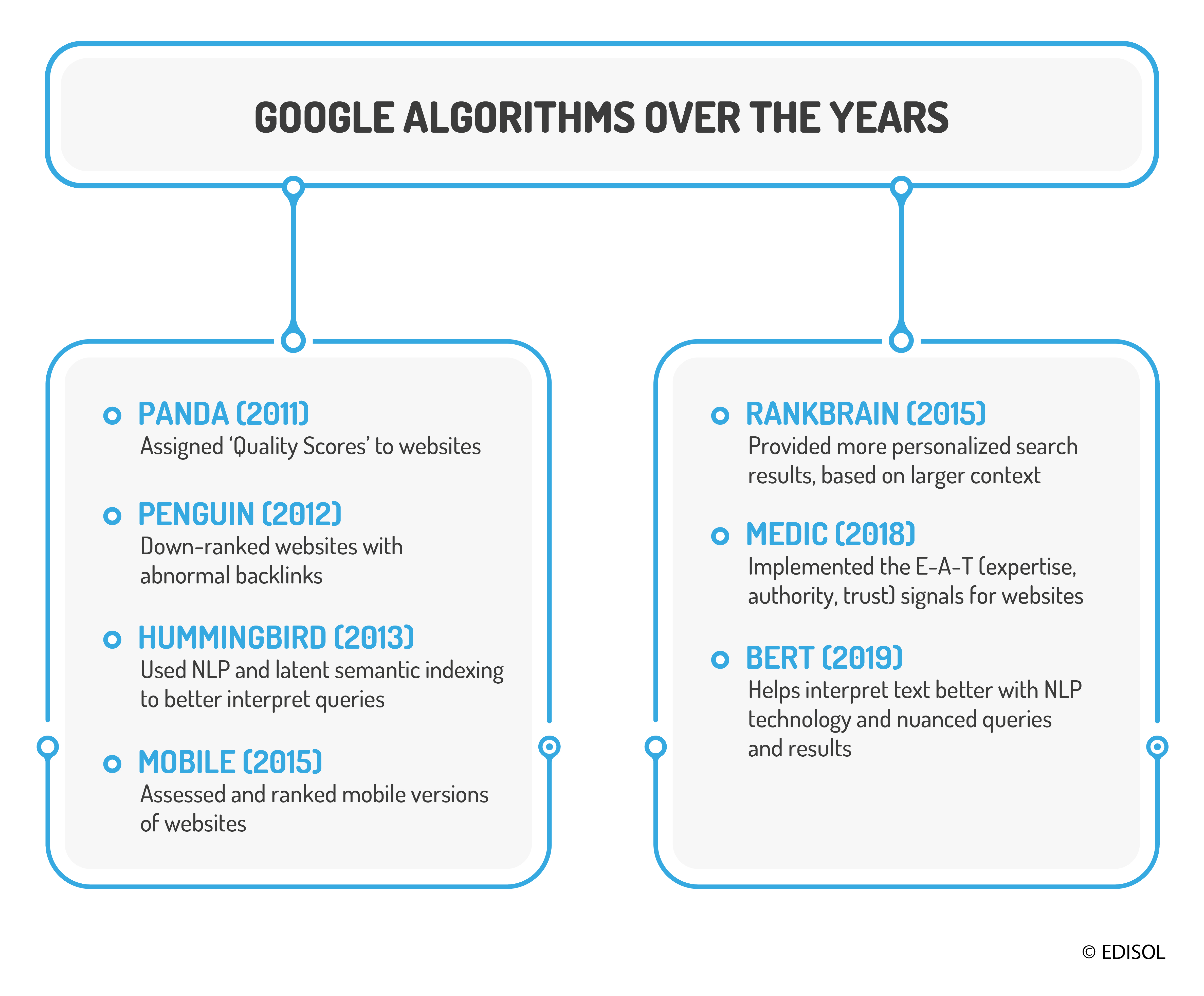SEO is key part of digital marketing, and companies are ready to devote their marketing dollar to secure that coveted page #1 result. This makes sense considering that 67.6% of all the clicks for a given query goes to the first five organic results. Naturally, it is well worth it to know how to secure those top spots. However, achieving this is quite a feat, as Google’s algorithm assesses nearly 200 factors when ranking websites.
With a better knowledge of technical SEO, marketers can get a leg up in this arena. By understanding how machine learning and natural language processing (NLP) play into the ranking criteria, these specialists could drive serious results. This is especially true considering the role NLP plays in voice search, which is the future.
In fact, in 2021, Google released a paper on a new NLP algorithm called SMITH. While there’s no official confirmation of its use or its influence on the existing BERT algorithm, it is clear that the Google SMITH NLP algorithm outperforms BERT. To know more about this algorithm and get a better idea of what it can mean to marketers, read on.
What is the Google SMITH algorithm?
SMITH, in typical Google style is an acronym, which when expanded is ‘Siamese Multi-depth Transformer-based Hierarchical’. Simply put, it is a search engine algorithm that is adept at breaking down longer texts and matching parts of long text with others within a document. In short, it is better at understanding texts that relate to itself, especially in longer formats.
Currently, Google uses BERT, which is good at predicting words in the context of a given sentence. It can predict hidden words within sentences quite well because it is trained on these specific data sets. SMITH, on the other hand, works to predict what the next block of sentences will be.

Both solve semantic matching problems, but SMITH focuses on long-to-long document matching. In fact, one of the key tasks is to predict whether a document pair is relevant to each other, aka related article suggestion. The other is to predict whether a given paper is a suitable citation of another, aka paper citation suggestion.
What problems does the Google SMITH algorithm solve?
As it stands, the SMITH algorithm makes up for the limitations of the BERT algorithm. Since BERT is limited by length of the documents, it can’t handle matching long texts without running into practical issues. Moreover, processing long documents with a Transformer-based long text encoder is also difficult.
Long texts are structured, contain internal structures, and demand a better understanding of semantic relations. All of this requires careful model design, but the SMITH algorithm combines the best of both worlds.
Due to the two-level hierarchy, it applies both sentence-level and document-level transformers. Here, the sentence-level transformers learn the contextual representations in a sentence block, whereas the document-level transformers look at the global interaction between different sentence blocks. This solves the quadratic memory problems.
What does Google’s SMITH algorithm mean for marketing?
Considering that SMITH supplements BERT, it is hard to zero in on concrete implications just yet. However, from the context of marketing, it is safe to assume both algorithms together are sure to aid processing natural language patterns. This is worth noting when discussing ways to optimise for voice search.
In the age of smart devices and smart speakers, it comes as no surprise that Google is improving its understanding of natural language from the context of how people query or speak. As a marketer, this means that the focus has to be on developing quality content. This would ensure that audiences get exactly what they need from your website, regardless of how they worded their query.
With a better idea of the latest and existing Google algorithms, the challenge now is to develop quality content. At such a juncture, you have two options: create it in-house or work with a specialised content marketing agency. The latter is usually a better option, especially when you partner with Edisol. We offer bespoke digital and content marketing solutions, and have a team of passionate strategists, writers, and editors to ensure quality. We understand how to craft content that wins, and can help your business secure the top spots on leading search engines. To know more about our services, contact us online.




